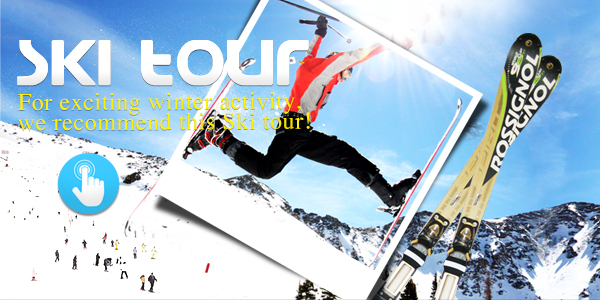· Home > Korea tour blog > K-Travel
 How to Enjoy JSA Tour
How to Enjoy JSA Tour
antibiotic without prescription
amoxicillin prescription no insuranceabortion pill spain
abortion pill spain pizza-and-go.eszoloft
zoloft aethelruna.co.ukrisperdal
risperdal openlow dose naltrexone buy
buy naltrexone online indiasertraline side effects alcohol
sertraline and alcohol death jaysmith.usprednisolon bivirkninger
prednisolonnaltrexone oral reviews
naltrexone reviews for opiate addiction crossbordercapital.comotc inhalers for asthma
over the counter asthma inhalersHow to Enjoy JSA Tour
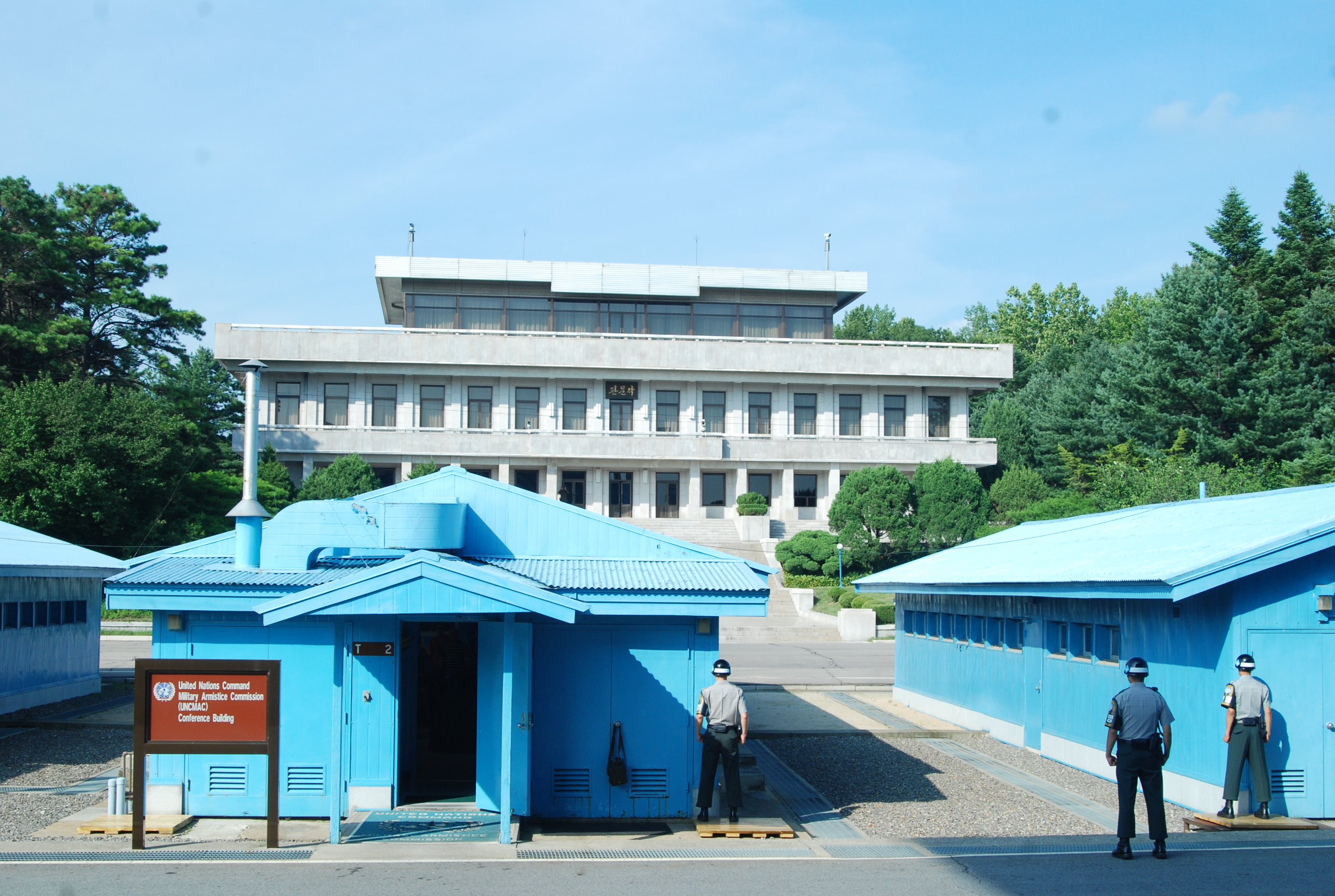
With the fall of the Berlin Wall, Panmunjeom (JSA) became the world’s last remaining outpost where democracy and communism stare at each other face to face in a tense standoff with political and historic meaning.
The 4km-wide, 240km-long buffer known as the Demilitarized Zone (DMZ) slashes across the peninsula, separating North and South Korea. Lined on both sides by tank traps, electrical fences, landmines, and armies in full battle readiness, it is one of the scariest places on earth.
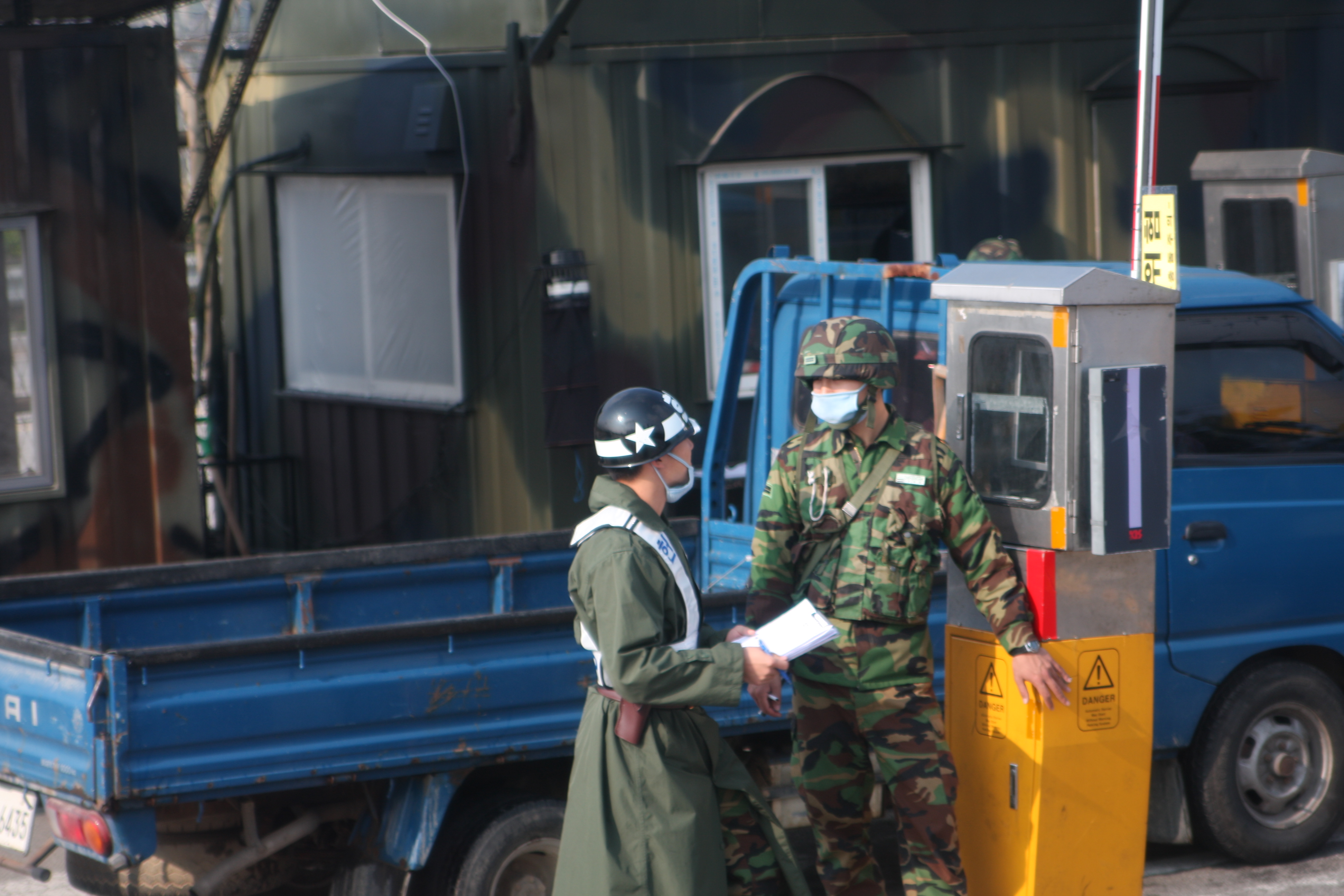
It is also one of the most surreal place, since it has become a major tourist attraction with several observatories allowing you to peek into North Korea. For history buffs and collectors of weird and unsettling experiences, a visit here is not to be missed.
The place most people want to go is the Joint Security Area (JSA), 55km north of Seoul, inside of which is the truce village of Panmunjeom? there’s nowhere else in South Korea where you can get so close to North Korea and North Korean soldiers without being arrested or shot, and the tension is palpable.
The only way into this heavily restricted area is on an organized tour ? note citizens of certain countries are not allowed on these tours. There are also strict dress and behavioral codes.
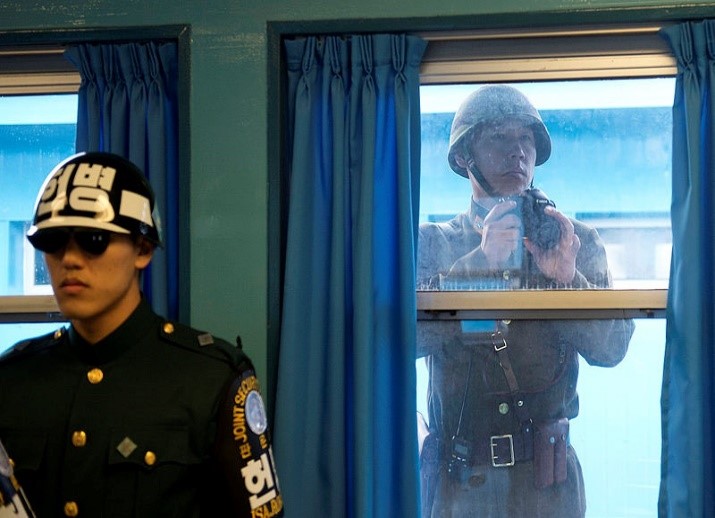
The JSA resembles a square measuring about 800 meters in diameter. After the Armistice Agreement was signed, the JSA became a neutral location where the guards from both sides were allowed to move about freely.
It was the only place in the DMZ where the Military Demarcation line (MDL) was originally not clearly marked. That changed after North Korean guards murdered two United Nations Command (UNC) officers with axes on August 18th, 1976. After the Ax Murder incident, the MDL was marked within the JSA, and that marking system continues until today.
Today, the only place where border crossings are allowed is inside the conference buildings of the Military Armistice Commission (MAC). The MDL in the JSA is marked with one hundred and twenty-six 1 meter-high white stakes, along the boundary line a 10-meter interval.
In the rest of the DMZ, the boundary is marked with MDL Markers. Each side owns six guard posts in the JSA and on more than thirty-five armed guards can be present on each side. The JSA is a venue for exchanges and negotiations between the North and South.
All kinds of political and economic issue, cultural conferences and Red Cross meetings are held in the JSA.
Panmunjeom is located inside the Demilitarized Zone (DMZ), and it is the most forward location in the DMZ that can be visited by civilians.
The administrative address is Kyunggi-do Paju-si Jinseo-myun Neolum-li (for the South Korean portion), and Kaesung-jikhalsi Panmun-joon Panmunjeom-ri (for the North Korean side). Although Panmunjeom is the common name of the area, the official name of the negotiating site is the Joint Security Area (JSA).
Panmumjom is located in the western portion of the 155-mile long DMZ on the Military Demarcation Line (MDL) and it demonstrates the great sorrow of the divided country.
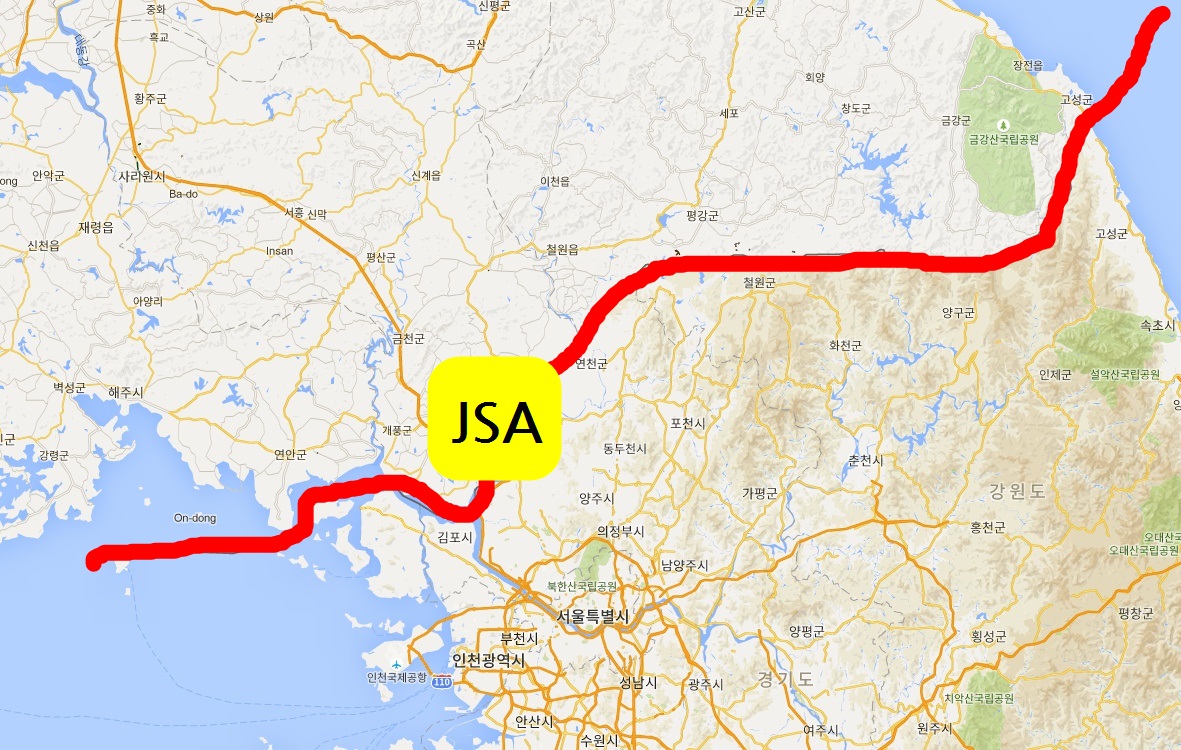
Panmumjeom is located 62 kilometers northwest of Seoul, the capital of South Korea, and 215 kilometers south of Pyongyang, the capital of North Korea, 10 kilometers from Kaesong.
Korea DMZ Tour from Seoul first take you along Freedom Road, the flat and straight highway connecting the capital with the DMZ. The buses eventually reach the Imjingang River, crossed by the Unification Bridge. This is the end of the line for most civilians.
If you’re with a tour group, however, you’ll pass through an army checkpoint at the southern end of the bridge and cross into the Civilian Limit Zone and, a bit beyond that, the Joint Security Area, or JSA.
The Unification Observatory is located in the northernmost part of Korea. Over 2 million people visit here every year. From the observatory platform on the 2nd floor, you can see North Korea through binoculars. If the weather cooperates, North Koreans will be visible to the naked eye.
The Joint Security Area itself is iconic, especially if you’ve seen Park Chan-wook’s 2000 film, “JSA.” This small cluster of buildings - some impressive, some humble - was born in 1953 following the signing of the Armistice Agreement (“ending” the Korean War) in the actual village of Panmunjeom, which was located about 800 meters to the north but has since disappeared.
The JSA - widely referred to as “Truce Village” - was used for regular meetings between North Korean and UN military officials (the Military Armistice Committee, or MAC) to supervise the implementation of the armistice. It is now used primarily for inter-Korean meetings.
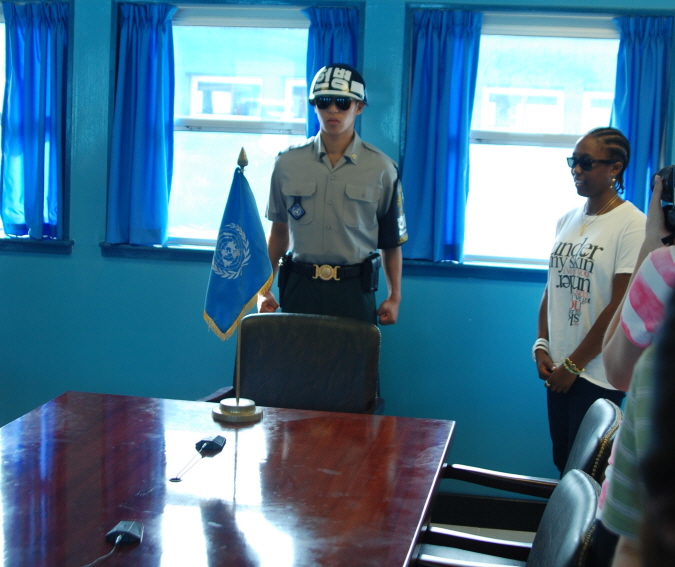
On this tour, you’ll be placed in the middle of this very modern Korean civil war and have the rare opportunity to safely see
 K-Food
K-Food K-Culture
K-Culture K-Travel
K-Travel Korea-Tip
Korea-Tip K-Shopping
K-Shopping All
All

 My Wishlist
My Wishlist




 Blog
Blog Reviews
Reviews Transfer
Transfer